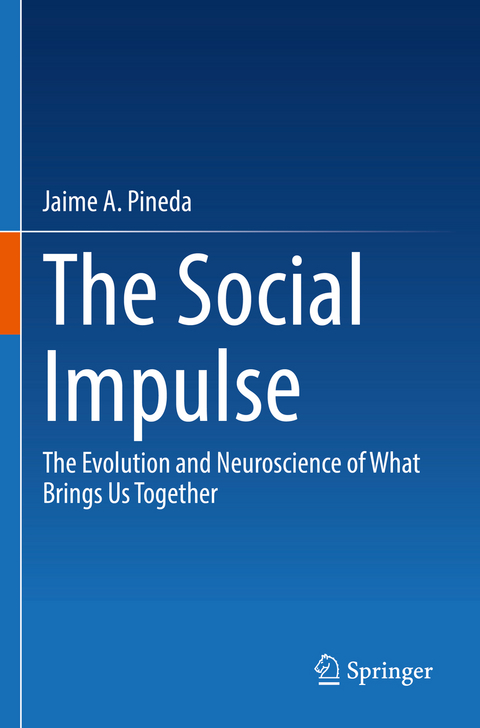
The Social Impulse
Springer International Publishing (Verlag)
978-3-031-08441-6 (ISBN)
During 36 years at the University of California, San Diego, Jaime A. Pineda received his Ph.D. in Neuroscience, completed postdoctoral work in Psychiatry, and was founding faculty member of the Cognitive Science Department. Until his retirement in 2018, Professor Pineda directed the Cognitive Neuroscience Laboratory where he explored the relationship between mind and brain. His research focused on the neuroetiology of autism, the role of mirror neurons in social cognition, neuronal plasticity, and brain-computer interfaces. He served on many NIH committees and was a reviewer for several scholarly journals. He is the author of over 100 articles, books, and reviews on the relationship between brain and mind, having published many widely cited papers in animal and human cognitive and systems neuroscience. Professor Pineda used brain imaging techniques, as well as behavioral, psychological and pharmacological methods, to understand normal and abnormal cognitive function. As a principal investigator on a long-term project studying Autism Spectrum Disorder, he was interested in developing strategies to reduce cognitive, behavioral, and neurofunctional deficits through self-directed neural plasticity. Professor Pineda was also scientific co-founder of Otosound, a biomedical therapeutics company involved in the treatment of tinnitus, and an active advisor for a variety of neurotechnology companies. Professor Pineda came to the United States from Honduras, Central America in 1963 at 9 years of age to get a better education. He is also a writer and poet, focusing on mind-brain relationships with an emphasis on spirituality, mysticism, environmentalism, and social activism.
Part I Differentiation-Integration Dynamics: Ultimate Causes.- Chapter 1: Introduction.- Chapter 2: Purposeless Design.- Chapter 3: Darwinian Evolutionary Theory.- Chapter 4: Principles of Differentiation and Integration.- Chapter 5: The Information Trend in Science.- Chapter 6: Is Social Cohesion a Different Mechanism of Evolution?.- Part II Roots and Mechanisms: Proximate Causes.- Chapter 7: Fundamental Physical Forces, Genes, and Epigenetics.- Chapter 8: Biological Origins.- Chapter 9: Neural Mechanisms of Sociality.- Chapter 10: Psychological Features.- Chapter 11: Cognitive Science Underpinnings.- Chapter 12: A Sociological Systems Theory.- Chapter 13: Developmental Roots.- Chapter 14: Metaphysical, Religious, and Spiritual Aspects.- Part III Survival Value.- Chapter 15: Sociality's Survival Value.- Part IV Conclusions.- Chapter 16: A New Framework: A Theory of Integration.
| Erscheinungsdatum | 25.07.2023 |
|---|---|
| Zusatzinfo | XXV, 190 p. 7 illus., 6 illus. in color. |
| Verlagsort | Cham |
| Sprache | englisch |
| Maße | 155 x 235 mm |
| Gewicht | 338 g |
| Themenwelt | Medizin / Pharmazie ► Studium |
| Naturwissenschaften ► Biologie ► Evolution | |
| Naturwissenschaften ► Biologie ► Humanbiologie | |
| Schlagworte | brain research • Cultural Neuroscience • Darwinian Evolution • Evolution • Integration-differentiation dynamics • Natural selection • Social Cohesion • Social neuroscience • unity drive |
| ISBN-10 | 3-031-08441-1 / 3031084411 |
| ISBN-13 | 978-3-031-08441-6 / 9783031084416 |
| Zustand | Neuware |
| Informationen gemäß Produktsicherheitsverordnung (GPSR) | |
| Haben Sie eine Frage zum Produkt? |
aus dem Bereich


